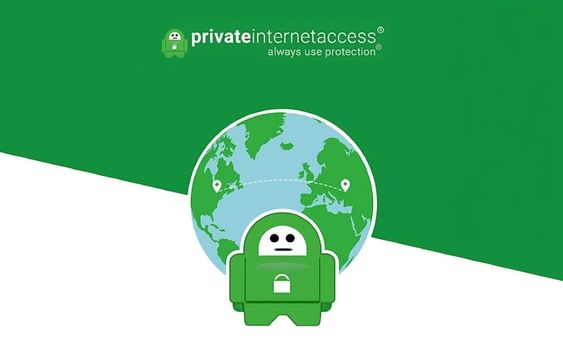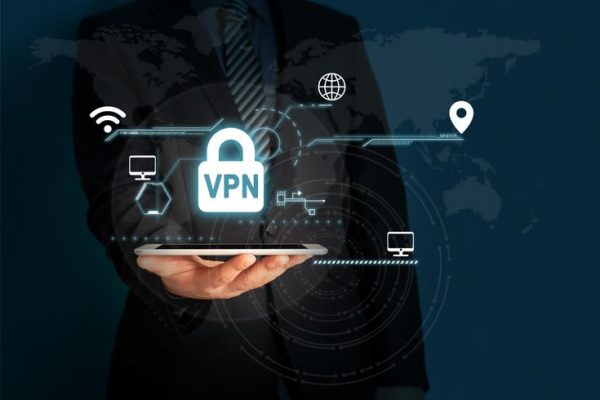Secure Your Online Presence: Navigating the Quest for the Best VPN Services
In an era where online privacy and security are paramount, finding the best VPN (Virtual Private Network) has become a necessity for many internet users. This article aims to guide readers through the process of selecting the best VPN for their needs by exploring key features, performance metrics, and user reviews.
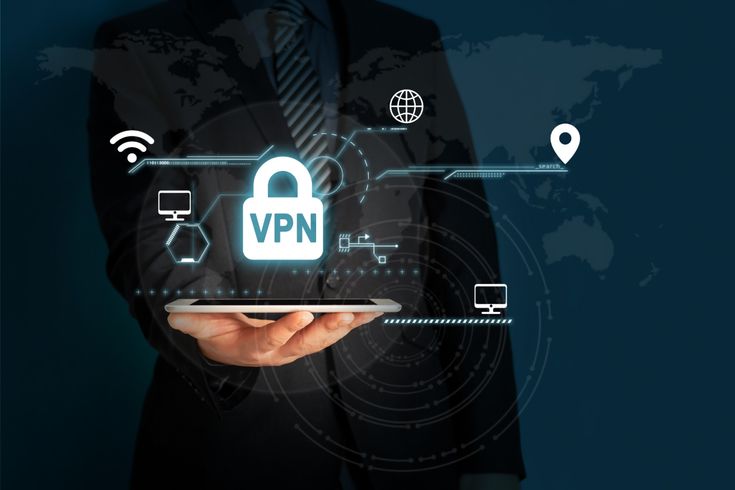
Understanding VPNs
A VPN, or Virtual Private Network, is a technology that allows you to create a secure connection to another network over the internet. It essentially creates a private tunnel for your data to travel through, encrypting it and protecting it from prying eyes. This is important for online privacy and security because it helps to protect your data from hackers, government surveillance, and other potential threats.
By using a VPN, you can browse the internet anonymously and securely, keeping your online activities private from ISPs, websites, and other third parties. This is especially important when using public Wi-Fi networks, where your data could be vulnerable to interception by malicious actors.
In addition to protecting your data, VPNs also allow you to access geo-restricted content and bypass censorship. By connecting to a server in a different country, you can access websites and services that may be blocked in your location, giving you greater freedom and flexibility online.
Key Features to Consider:
When choosing a VPN, it's important to consider several key features to ensure you're getting the best service to meet your needs. One essential feature to look for is the encryption protocol used by the VPN provider. Strong encryption protocols, such as AES-256, ensure that your data is securely encrypted and protected from hackers and other malicious actors.
Another important feature to consider is the server locations offered by the VPN provider. Having a wide range of server locations to choose from can help you access geo-restricted content and improve your connection speeds by connecting to servers closer to your physical location.
Speed is another crucial factor to consider when choosing a VPN. Look for a provider that offers fast and reliable connection speeds to ensure smooth streaming, gaming, and browsing experiences.
Compatibility is also key when selecting a VPN. Make sure the provider offers apps and clients for all of your devices, including desktop computers, smartphones, and tablets, to ensure seamless connectivity across all of your devices.
Lastly, consider the privacy policies of the VPN provider. Look for a provider that has a strict no-logs policy and is committed to protecting your privacy and anonymity online. Additionally, consider whether the provider is based in a privacy-friendly jurisdiction to ensure that your data is safe from government surveillance and other threats.
By taking these key features into consideration when choosing a VPN, you can ensure that you're getting a secure, fast, and reliable service that meets your needs for online privacy and security.
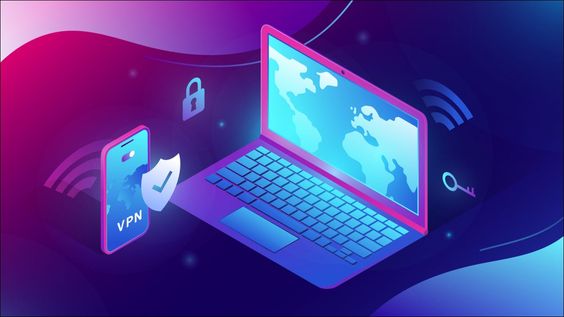
Performance Benchmarks:
Performance benchmarks are crucial when selecting a VPN provider as they give insight into how well the service performs in terms of speed, latency, and reliability. By comparing the performance metrics of different VPN providers, users can make informed decisions about which one best suits their needs.
Speed tests are a common benchmark used to evaluate the performance of a VPN provider. These tests measure how quickly data is transferred between the user's device and the VPN server, giving an indication of how fast the connection is. Users typically look for VPN providers that offer high speeds to ensure smooth and seamless browsing, streaming, and downloading experiences.
Latency measurements are also important as they determine the delay in data transmission between the user's device and the VPN server. Low latency is desirable as it means that data packets are being transmitted quickly, resulting in a more responsive and smooth connection.
Reliability assessments evaluate how consistent and stable a VPN provider's connection is over time. A reliable VPN should maintain a stable connection without frequent drops or interruptions, ensuring a seamless and uninterrupted browsing experience for users.
By exploring performance benchmarks and comparisons of top VPN providers, users can gain a better understanding of how each service performs in terms of speed, latency, and reliability. This information can help users make informed decisions about which VPN provider is best suited to their specific needs and preferences.
User Reviews and Testimonials:
User reviews and testimonials serve as a valuable resource for individuals seeking to understand the real-world experiences of VPN users. By aggregating reviews from reputable sources, prospective users can gain insights into the performance, reliability, and overall satisfaction of a particular VPN service.
These reviews offer a firsthand account of how the VPN performs in various scenarios, such as streaming, gaming, or accessing geo-restricted content. Users often share their experiences with connection speeds, server availability, customer support, and overall ease of use. This information can be crucial in helping individuals make informed decisions on which VPN service best suits their needs.
Furthermore, testimonials from verified users provide a level of credibility and authenticity to the reviews. By showcasing the positive experiences of actual customers, potential users can gain confidence in the reliability and effectiveness of the VPN service.
Best VPNs by Category:
When it comes to choosing a VPN provider, there are a plethora of options available in the market. To make your decision-making process easier, it's important to highlight the top VPN providers in various categories to suit your specific needs.
First and foremost, the best overall VPN provider is one that offers a combination of strong security features, fast speeds, and reliable customer support. Some of the top contenders in this category include ExpressVPN, NordVPN, and CyberGhost.
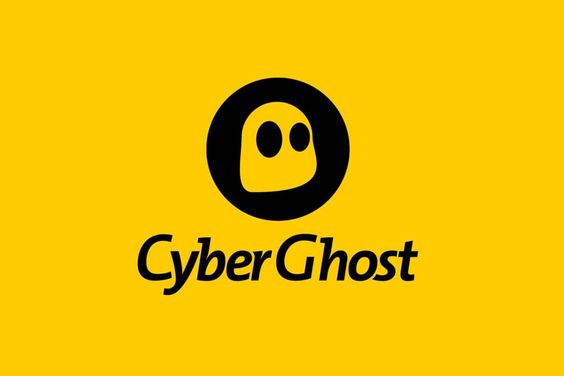
For those who prioritize streaming content, the best VPN for streaming should have servers optimized for accessing geo-restricted content on platforms like Netflix, Hulu, and Amazon Prime Video. Providers like Surfshark and Private Internet Access are known for their ability to bypass geo-blocks and provide seamless streaming experiences.
If gaming is your primary concern, you'll want a VPN that offers low latency and high speeds to ensure a smooth gaming experience. VPNs like IPVanish and VyprVPN are popular choices among gamers for their dedicated gaming servers and network optimization for online gaming.
For users who engage in torrenting activities, the best VPN for torrenting should offer P2P-optimized servers, strong encryption, and a strict no-logs policy to protect your privacy and anonymity while downloading files. VPNs like Mullvad and PrivateVPN are highly recommended for their torrent-friendly features and robust security protocols.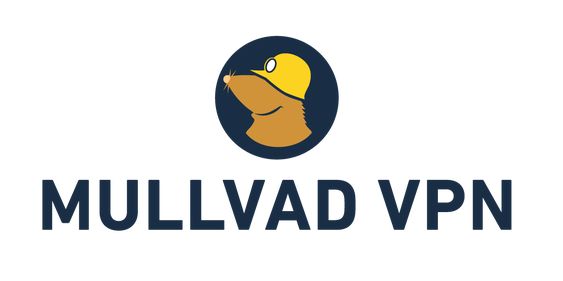
Lastly, for those who prioritize privacy and security above all else, the best VPN for privacy should have a strict no-logs policy, strong encryption standards, and advanced security features like a kill switch and DNS leak protection. Providers like ProtonVPN and Trust.Zone are renowned for their commitment to user privacy and data protection.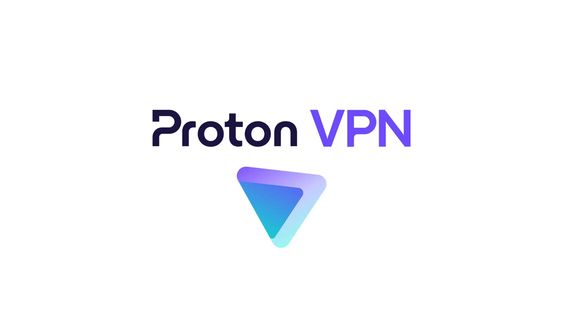
In conclusion, when selecting a VPN provider, it's essential to consider your specific needs and preferences to find the best option for you. Whether you prioritize streaming, gaming, torrenting, or privacy, there are top VPN providers available in each category to meet your requirements and enhance your online experience.
Security and Privacy Considerations:
In today's digital age, where online threats, data breaches, and government surveillance are rampant, the importance of using Virtual Private Networks (VPNs) cannot be overstated. VPNs are crucial tools in safeguarding our online security and privacy by encrypting our internet connection and hiding our IP address, making it difficult for hackers, data thieves, and government agencies to monitor our online activities.
One of the key benefits of using a VPN is that it provides an additional layer of security when browsing the internet, especially when using public Wi-Fi networks. By encrypting our data and routing it through secure servers, VPNs help protect our sensitive information from potential cyber attacks and unauthorized access.
Moreover, VPNs play a crucial role in protecting our privacy by masking our IP address and preventing websites, advertisers, and internet service providers from tracking our online activities. This is particularly important in an era where our personal data is constantly being collected and monetized without our consent.
When choosing a VPN provider, it is essential to carefully examine their privacy policies and logging practices to ensure that they are committed to protecting our data. Some VPN providers may keep logs of users' online activities, which could potentially compromise our privacy and security. It is important to choose a VPN provider that has a strict no-logging policy and does not store any information about its users' online activities.
Value for Money:
When considering the value for money of VPN services, it is essential to carefully evaluate the pricing plans and subscription options offered by leading providers. This involves not only looking at the cost of the service, but also considering the features and benefits included in each plan.
One important factor to consider is the pricing structure of the VPN service. Some providers offer tiered pricing plans with different levels of service, while others may offer a single plan with all features included. It is important to compare the cost of each plan and determine which offers the best value for the price.
In addition to cost, it is also important to consider the features and benefits included in each subscription option. This may include the number of servers available, the speed of the connection, the level of encryption provided, and any additional security features such as ad-blocking or malware protection. Evaluating these features can help determine which VPN service offers the best value for money.
Another important consideration when evaluating the value for money of VPN services is customer support. It is important to choose a provider that offers reliable customer support, whether through live chat, email, or phone. This can be crucial if you encounter any issues with your VPN service and need assistance troubleshooting or resolving problems.
Future Trends and Developments:
The future of the VPN industry is filled with exciting advancements and developments that are poised to revolutionize the way we think about online privacy and security. One of the most significant trends that we can expect to see is the continued evolution of encryption technologies. As cyber threats become more sophisticated, VPN providers are constantly working to enhance their encryption protocols to ensure that user data remains secure and protected. This may involve the adoption of new encryption standards, such as quantum-resistant algorithms, or the development of innovative encryption techniques that are resistant to emerging threats.
In addition to advancements in encryption technologies, we can also expect to see the introduction of new features and functionalities in VPN services. For example, some providers are exploring the use of artificial intelligence and machine learning algorithms to optimize network performance and enhance user experience. Others are integrating blockchain technology to improve transparency and accountability in their operations. These new features are designed to cater to the evolving needs of users and provide them with a more seamless and secure online experience.
Furthermore, regulatory changes are also likely to have a significant impact on the VPN industry in the coming years. As governments around the world grapple with issues related to online privacy and security, we can expect to see new regulations and policies that may affect how VPN providers operate. For example, some countries may implement stricter data retention laws or require VPN services to comply with certain security standards. These regulatory changes will undoubtedly shape the future of the VPN industry and influence the direction in which it evolves.
In conclusions, choosing the best VPN is crucial for maintaining online privacy and security in an increasingly interconnected world. By considering key features, performance metrics, user reviews, and industry accolades, readers can make informed decisions and find the VPN that best meets their needs and preferences.




